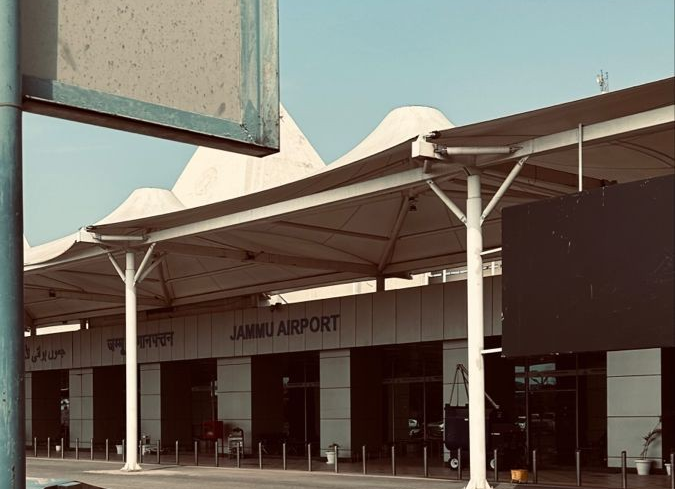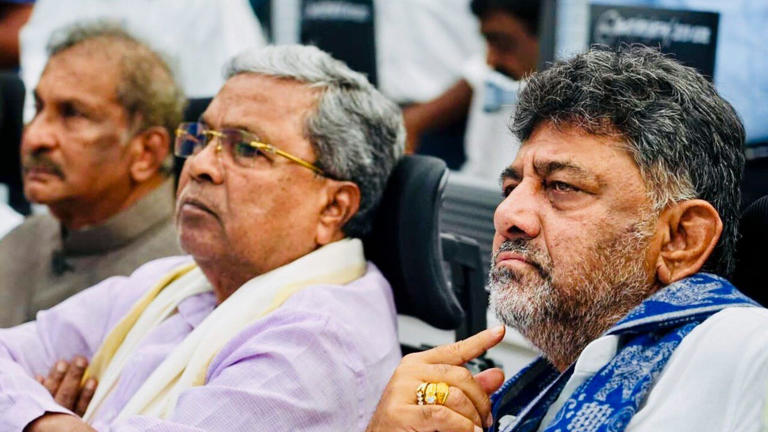What Happened in Jammu on May 8-9, 2025?
On May 8, 2025, Jammu became the focal point of a significant escalation between India and Pakistan, marked by a drone and missile attack from Pakistan. Pakistan launched a drone and missile attack targeting Jammu and several other areas, including military stations in Udhampur and Pathankot. The assault extended to Jammu airport, with reports of explosions and missile streaks in the sky, prompting a complete blackout across the city.
My cousin brother #SunilKher sent this video from his home in Jammu. I called immediately and asked him if he and his family are ok? He laughed a little proudly and said, भैया! हम भारत में है! हम हिंदुस्तानी है।हमारी सुरक्षा भारतीय सेना और माता वैष्णो देवी कर रही है।आप टेंशन मत… pic.twitter.com/fv8UmCILC0
— Anupam Kher (@AnupamPKher) May 8, 2025
Air raid sirens echoed in Jammu, Samba, and Akhnoor, and residents were advised to seek shelter. According to India’s Ministry of Defence, the attacks were repelled using advanced air defence systems like the S-400, with no casualties or material losses reported. India also shot down a Pakistani F-16 fighter jet and neutralized eight incoming missiles. However, a residential building in Jammu suffered damage, and two Pakistani drones were downed near Jammu University, highlighting the intensity of the assault. Jammu and Kashmir Chief Minister Omar Abdullah visited the city on May 9 to assess the situation, reflecting the gravity of the incident.
Why Did Pakistan Target Jammu?
The attack on Jammu was a retaliation for India’s Operation Sindoor, conducted on May 7, 2025, which targeted terror camps in Pakistan and Pakistan-occupied Kashmir (PoK). India launched the operation in response to a terror attack in Pahalgam on April 22, which killed 26 people, mostly Hindu tourists. India claimed the strikes killed over 100 terrorists, but Pakistan reported civilian casualties and condemned the operation as an act of aggression. On May 8, Pakistan’s drone and missile strikes aimed to hit strategic military targets in India, including Jammu, as a direct response. Pakistan’s Defence Minister Khawaja Asif denied launching attacks on Indian-administered Kashmir, but warned of further retaliation, escalating tensions. The attack on Jammu, a strategically important city near the Line of Control, underscores the ongoing conflict over Kashmir, a disputed region both nations claim in full, and the cycle of retaliation fueled by cross-border terrorism.
What Are the Broader Implications of This Conflict?
The Jammu drone attack has intensified the India-Pakistan rivalry, raising fears of a wider military confrontation between two nuclear-armed nations. India’s retaliatory strikes on Pakistani cities like Lahore, Sialkot, Islamabad, and Karachi on May 8 further escalated the situation, with Pakistan reporting civilian casualties. The conflict disrupted daily life, with blackouts in Jammu, Punjab, Rajasthan, and even Bhuj in Gujarat, and the suspension of an IPL match in Dharamshala. Diplomatically, the U.S. has urged de-escalation, with the Trump administration advocating for dialogue, while the United Nations expressed concern over a potential nuclear flashpoint. The involvement of advanced weaponry, like India’s S-400 systems and Pakistan’s F-16 jets, highlights the growing role of technology in this conflict. However, the lack of verified casualties on both sides and Pakistan’s denial of involvement suggest a complex narrative, possibly involving misinformation. The incident emphasizes the need for diplomatic intervention to address the root causes of terrorism and mistrust, ensuring stability in South Asia amidst heightened military preparedness.





















